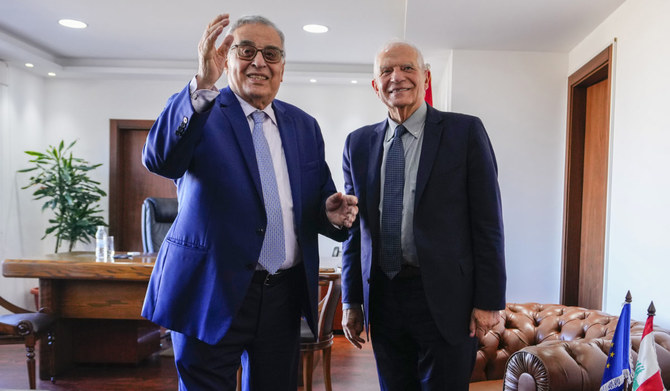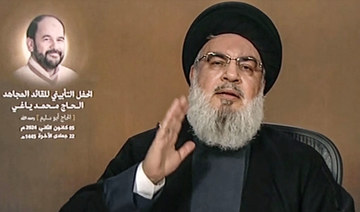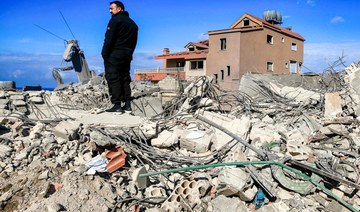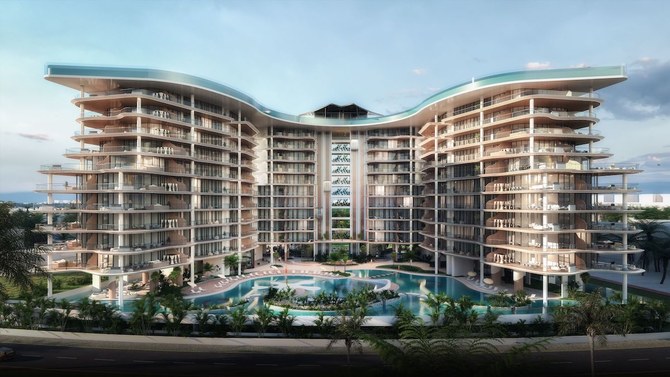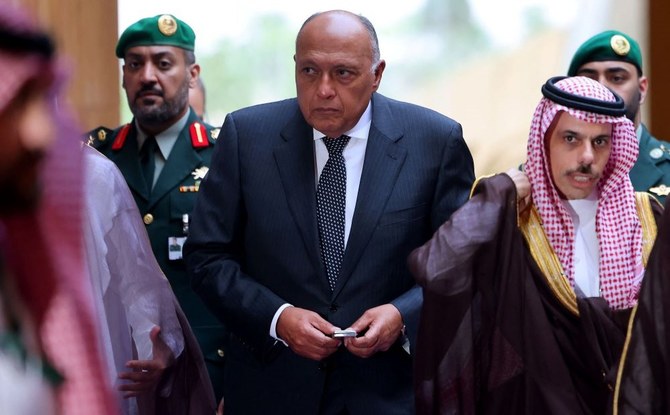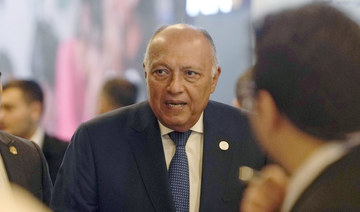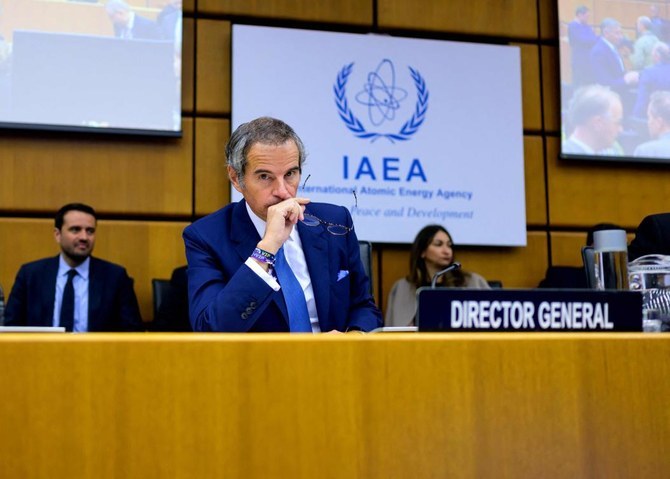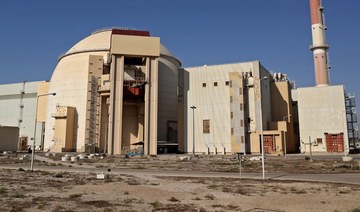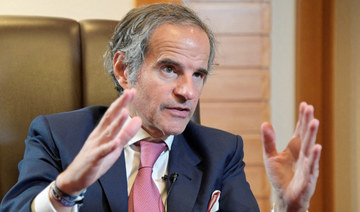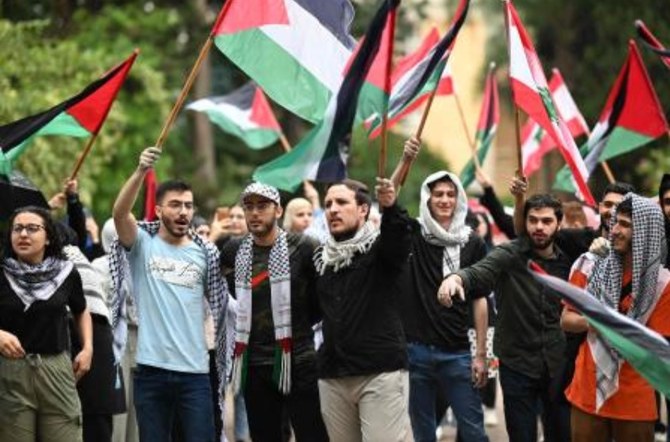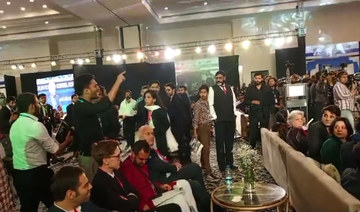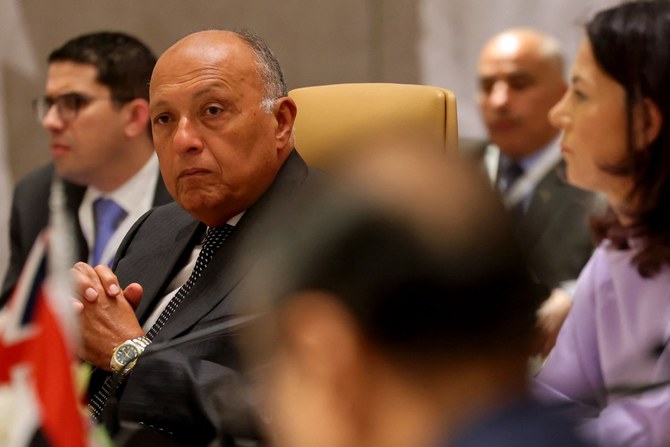BEIRUT: EU foreign policy chief Josep Borrell has warned that an expansion of the war in Gaza into a wider regional conflict, especially one that involves Lebanon, must be prevented.
“It is imperative to avoid regional escalation in the Middle East,” he said during a press conference in Beirut on Saturday with Lebanese Foreign Minister Abdullah Bou Habib. “It is absolutely necessary to avoid Lebanon being dragged into a regional conflict.”
Borrell, the EU’s high representative for foreign affairs and security policy, said his efforts are focused on preventing this from happening.
After a meeting with caretaker Prime Minister Najib Mikati in Beirut, Borrell said: “The priority is to avoid regional escalation and push diplomatic efforts to create the conditions to reach a just and lasting peace between Israel and Palestine and in the region.”
Mikati told Borrell the Lebanese people are “advocates of peace, not war, and we seek to achieve stability” and “we are making the necessary contacts in this regard because any large-scale explosion (of hostilities) in southern Lebanon will lead the region to a widespread explosion.”
He said Lebanon “is committed to implementing UN Resolution 1701, and its full implementation first calls for Israel to stop violating Lebanese sovereignty and to withdraw from the Lebanese territories that it still occupies.”
Resolution 1701 was approved by the UN Security Council in August 2006 with the aim of resolving the war that year between Israel and Hezbollah.
During a meeting with Nabih Berri, the speaker of Lebanon’s parliament, Borrell reportedly expressed “great concern about the war continuing in the Gaza Strip,” his “keenness to not expand it toward Lebanon,” and his “fear of Israeli escalation.”
Borrell said “stopping the War on the Gaza Strip must be the priority since it is the gateway to restoring calm to Lebanon. It will be then easy to discuss the full implementation of the provisions of Resolution 1701.”
Berri told Borrell that Lebanon is committed to international legitimacy and all relevant UN resolutions, in particular Resolution 1701, the implementation of which begins with Israel halting its aggression and withdrawing from the Lebanese territory it occupies.
He added: “War can be avoided and we must avoid it. Diplomacy can prevail to find a solution.”
Borrell said “it is necessary to avoid escalation in the Middle East and dragging Lebanon into war, which is the last thing (the country) needs.
“Lebanon is on the front line of the current conflict. It enjoys stability and can preserve its interests and independence, thus contributing to regional stability.” He also emphasized the need to implement Resolution 1701.
Borrell also met Gen. Aroldo Lazaro, the UN Interim Force in Lebanon’s head of mission and force commander, to discuss the current situation along the Blue Line, the demarcation line between Lebanon and Israel established by the UN in June 2000, and the importance of efforts to prevent any escalation of violence.
UNIFIL’s media office said: “The pursuit of a diplomatic solution is not only possible but also necessary.”
Borrell talks came shortly after Hezbollah targeted Israel’s Meron air control base with 62 missiles on Saturday, which the group said resulted in “direct and confirmed hits.” It described the attack as an “initial response” to the assassination by Israel of Hamas deputy leader Saleh Al-Arouri in a southern suburb of Beirut on Tuesday.
Hours earlier, Hezbollah Secretary-General Hassan Nasrallah had said during a speech that a response to the attack that killed Al-Arouri would “inevitably come, and it will be determined on the ground.”
A political observer described Hezbollah’s comment that the response was only an initial one as “a convenient tactic for the party that does not deviate from the rules of engagement adopted on the southern Lebanese front for the past 91 days.”
Explaining the reason for choosing the target of its attack, Hezbollah said: “Meron air control base is located on the top of Mount Jarmaq in northern occupied Palestine, the highest mountain peak in occupied Palestine. It is the only center for management, surveillance and air control in northern Israel and no major alternative exists.”
The base “is concerned with organizing all air operations toward Syria, Lebanon, Turkiye, Cyprus and the northern part of the eastern basin of the Mediterranean Sea” and “one of two main bases in all of Israel — Meron in the north and Mitzpe Ramon in the south.”
The Israeli army on Saturday morning ordered the closure of all streets and intersections along the border with Lebanon, and stepped up airstrikes on border areas in Lebanon. These strikes extended into a new location, between Kawthariyat Al-Siyad and the town of Sharqiya in Sidon district. Three strikes took place there and it was the first time such Israeli attacks have crossed the Litani River.
Israeli airstrikes also hit the surrounding areas of Aita Al-Shaab, Yaroun, Beit Lev, Khiam, Kafr Kila, Al-Housh, Burj Al-Muluk, Markaba, Rab El-Thalathine, and Al-Adaysah. Drone attacks targeted the towns of Marwahin and Yarin more than once, while artillery shells were fired at areas on the outskirts of the cities of Marwahin and Al-Dhahira. Israeli artillery also targeted the western outskirts of the towns of Mays Al-Jabal, Wadi Al-Saluki and Hula.
Hezbollah said its forces successfully struck a site in the town of Metulla, near the border, and army barracks in Zarit, and targeted a group of enemy soldiers near Honen Barracks. They also attacked a military site in the Margolet settlement, using an anti-tank missile, and a site at Bayad Blida.
A Syrian refugee, Fatima Al-Aoush, was reportedly injured in one Israeli attack at the Tower of Kings in Lebanon. The town of Yaron was also targeted by Israeli drones, and Khiam was reportedly struck by phosphorus bombs, as a result of which two civilians suffered burns.
Fajr Forces, the military wing of Jamaa Islamiyya, said that they bombed the city of Kiryat Shmona on Friday evening.
Meanwhile, Hezbollah mourned four of its members killed in the fighting: Mustafa Hassan Saad from Bint Jbeil, Khader Muhanna from Kafr Kila, Abdullah Al-Asmar from Al-Adisa, and Abbas Hassan Rammal.



